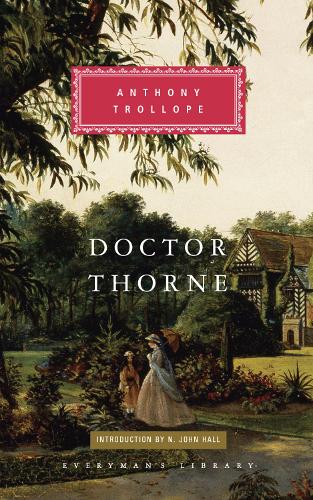
Doctor Thorne
(Hardback)
Available Formats
Paperback
Published: 1st July 2015
Hardback
Published: 16th September 1993
Paperback
Published: 25th April 1991
Hardback
Published: 12th July 2016
Publishing Details
Doctor Thorne
By (Author) Anthony Trollope
Introduction by N. John Hall
Everyman
Everyman's Library
16th September 1993
United Kingdom
Classifications
General
Fiction
Classic fiction: literary and general
823.8
Physical Properties
Hardback
318
Width 135mm, Height 210mm, Spine 35mm
680g
Description
In the third novel of the Barsetshire series, Trollope continues his study of a small cathedral city and the surrounding rural community which he presents as a microcosm of nineteenth-century England. Through each of the Barsershire novels can be read on its own, the six together present an incomparable portrait of life and manners in the quiet but troubled heart of a great nation at the zenith of its prosperity. DOCTOR THORNE revolves round the characters of the doctor and his niece, Mary, but the complex social life of which they are a part, ranging in scope from great houses to poor cottages, is almost more important than individual characters. If God is in the details, these novels are indeed divine.
Author Bio
Anthony Trollope was born on 24 April 1815 and attended both Harrow and Winchester schools. His family were poor and eventually were forced to move to Belgium, where his father died. His mother, Frances Trollope, supported the family through writing. Trollope began a life-long career in the civil service with a position as a clerk in the General Post Office in London he is also credited with later introducing the pillar box. He published his first novel, The Macdermots of Ballycloran in 1847, but his fourth novel, The Warden (1855) began the series of 'Barsetshire' novels for which he was to become best known. This series of five novels featuring interconnecting characters spanned twenty years of Trollope's career as a novelist, as did the 'Palliser' series. He wrong over 47 novels in total, as well as short stories, biographies, travel books and his own autobiography, which was published posthumously in 1883. Trollope resigned from the Post Office in 1867 and stood for Parliament as a Liberal, though he was not elected. He died on 6 December 1882.
